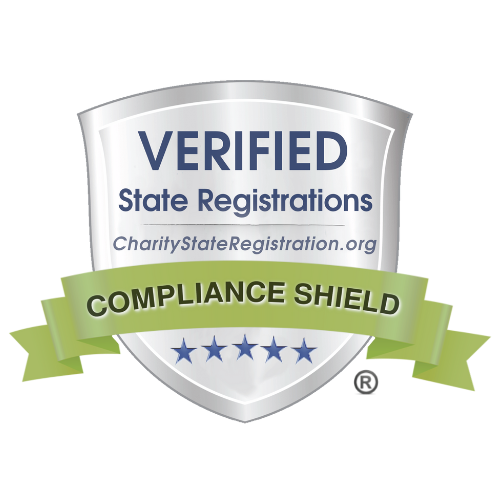IAVA | March 22, 2023
READ: Women Veterans: The ongoing fight for a place to call ‘home’

Written by: Kaitlynne Yancy, Associate Director of Government Affairs for IAVA
I found my calling in the Navy. My time in service was one of healing and growth, and my advocacy work at a leading veterans organization after leaving the military was a continuation of that fulfilling experience.
While many veterans look back at their time in the military with this same fondness and pride, these feelings do not alleviate the challenging realities we have to navigate everyday. Being a veteran can come with its own set of often-interconnected mental, emotional and physical stressors beyond service.
Unfortunately, these compounding crises can result in the loss of one’s home — a predicament disproportionately affecting women veterans due to the unique challenges they experience.

Military Sexual Trauma (MST)
More than 1 in 3 female veterans reported experiencing MST in 2022. A major motivator behind the significant number of housing insecure women veterans, MST’s long-term impact on survivors — increased likelihood of mental health and substance abuse disorders, interpersonal trauma and future sexual assault — detract from the safety and health that individuals need to maintain stable housing.
MST’s impact doesn’t dissipate with time — instead, the percentage of veteran MST survivors who experience homelessness increases from 1.6 percent in the first 30 days, to 4.4 percent within one year, to nearly 10 percent within five years. Astoundingly, these rates are more than double that of veterans who have not experienced MST.
Current housing options may not provide the security and mental health support resources veteran MST survivors need in order to cope with — and eventually overcome — housing insecurity. The risk of violence can discourage veterans from utilizing congregate housing programs, leaving them to fight to improve their mental, physical and emotional health with meager resources. This must be accounted for in the fight to end the veteran housing crisis.
Intimate Partner Violence (IPV)
IPV is also one of the most common contributors to housing insecurity. This loss of personal safety often leaves IPV survivors with the impossible decision of ending the violence and leaving their relationships/homes to prevent further trauma, but knowing it could result in housing insecurity. An estimated 24 percent women experience IPV in their lifetime, with women veterans experiencing IPV at an even higher rate of 33 percent.
Being one of the half a million women veterans represented by this 33 percent, I have firsthand experience with IPV and its enduring stressors. IPV is often a silent crisis, where individuals internalize the pain and abuse they face. In the years I lived through it, I was socially and economically isolated, suffering through depression, and even contemplated suicide. These risk factors can create a dangerous spiral toward displacement.
I realize I’m incredibly fortunate not to have lost my home during this challenging time and cannot begin to imagine how so many IPV survivors navigate this massive loss.
We continue to see a lack of useful solutions to address the IPV to housing insecurity pipeline. This issue requires ongoing attention from researchers and policymakers to design housing options that address IPV survivors’ specific needs — especially as they relate to issues of safety and resource accessibility.
Child Care
Women veterans are often homeless with children. The VA and community providers named child care as the second highest unmet need in 2022, a need that’s seen little improvement in over a decade.
As someone who had to quit her job due to my son’s medical diagnosis, I was privileged to have a support system that came to my aid and made sure my family was secure. Too many do not have that support and are faced with the possibility of losing their children due to housing insecurity.
The Government Accountability Office found that more than 60 percent of organizations with Grant and Per Diem programs did not have sufficient resources to provide housing for the children of veterans. Of the 52 that did provide housing, 70 percent had major restrictions, including the number of children per veteran and age limits.
Even when female veterans have access to programs that provide child support, many are worried that by utilizing these services or asking for help, their children will be removed from their care. The lack of childcare services exacerbates housing insecurity and vice versa, leaving women veterans trapped in a vicious cycle.
Finding a Path Forward
According to the Iraq and Afghanistan Veterans of America’s most recent member survey, 26 percent of women veterans didn’t have a permanent place to live upon transition out of the military. Of this group, 86 percent of women veterans couch-surfed or stayed with family or friends temporarily when they transitioned.
Despite the proven needs of women veterans, they are underrepresented among the participants of government programs not equipped to properly address the harsh, complex realities they face.
My experiences are not unique. Too often, women veterans feel unseen and unheard. I have felt the isolation and had I not had my personal support system, I firmly believe I would not be here today.
Every veteran deserves support. Concrete solutions need to be enacted to fight the inflated rates of housing insecurity among women veterans. Ensuring that housing programs include child care and mental health resources, have improved safety considerations and provide financial solutions are necessary to fight housing insecurity holistically.
It’s wrong that many of our nation’s veterans have fought for years for a place to call ‘home’. It’s our job as citizens of this great country to ensure their fight is not in vain.
This piece was originally published by The Hill on March 21, 2023.





